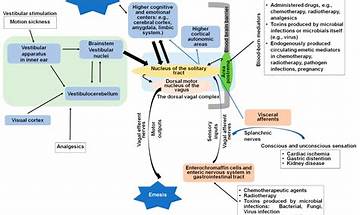Cell sub-publication: Chinese scholars have found targeted chemotherapy drugs that are expected to kill all solid tumors, and clinical trials have begun.

Writing about Song Grammar
Source: Novartis
Cancer is a major public health problem in the world. In recent years, due to diet, environment, aging population and other factors, the incidence of cancer in the world has been increasing, and cancer as the main cause of death has become increasingly prominent.
According to the global cancer data released by the World Health Organization's International Agency for Research on Cancer (WHO-IARC), there will be 19.29 million new cancer cases and 9.96 million new cancer deaths worldwide in 2020. Globally, with the aging of the population, it is estimated that the cancer burden will increase by 50% in 2040 compared with 2020, and the number of new cancer cases will reach nearly 30 million.
On August 1st, 2023, Gu Long et al. of Hope City National Medical Center, the top cancer treatment and research institution in the United States, published a research paper entitled: Small molecular targeting of transcription-replication conflict for selective chemotherapy in Cell Chemical Biology.
In this study, a targeted chemotherapy drug AOH1996 (a small molecule PCNA inhibitor) was developed, which can kill almost all solid tumors in preclinical research. At present, the drug is undergoing phase I clinical trials in the city of hope.
Proliferating cell nuclear antigen (PCNA) is a kind of protein, which exists widely in the nucleus. It plays an important role in the process of DNA replication and repair, and it is essential to maintain the stability and health of the cell genome. In cancer research, the expression level of PCNA can be used as an index to evaluate cell proliferation activity and cancer prognosis.
According to the researchers, PCNA is like an aviation hub, including multiple planes. Studies show that PCNA has undergone unique changes in cancer cells, which enables us to design a drug that only targets the form of PCNA in cancer cells. The drug is like a command center, which can only ground planes carrying PCNA mutations.
In the past 20 years, researchers have been developing AOH1996 to target the changed PCNA in cancer cells.
In this study, the researchers tested AOH1996 in more than 70 cancer cell lines and several normal control cells. The study found that AOH1996 selectively killed cancer cells by destroying the reproductive cycle of cells, but did not interrupt the reproductive cycle of healthy cells.
Therapeutic characteristics of AOH1996
Specifically, AOH1996 is aimed at the transcription-replication conflict, which refers to the mutual interference between transcription and DNA replication in cells, thus affecting the normal function of cells.
However, this therapy can prevent DNA-damaged cells from dividing in G2/M stage and prevent the replication of wrong DNA in S stage.
The researchers said that the results were exciting. After AOH1996 treatment, tumor growth could be inhibited in cell and animal models without affecting healthy cells.
Anticancer activity in animal models
In addition, the study also shows that AOH1996 makes cancer cells more susceptible to chemicals that cause DNA or chromosome damage, such as cisplatin, which indicates that AOH1996 has the potential of combined drugs.
It is reported that the research chemotherapy drug is currently undergoing phase 1 clinical trials in the city of hope.
Generally speaking, this study shows that AOH1996 is a targeted chemotherapy drug that can kill all solid tumors in preclinical experiments, and it can kill cancer cells without affecting healthy cells.
Paper link:
https://doi.org/10.1016/j.chembiol.2023.07.001
Declaration: All article resources on this website, unless otherwise specified or labeled, are collected from online resources. If the content on this website infringes on the legitimate rights and interests of the original author, you can contact this website to delete it.






